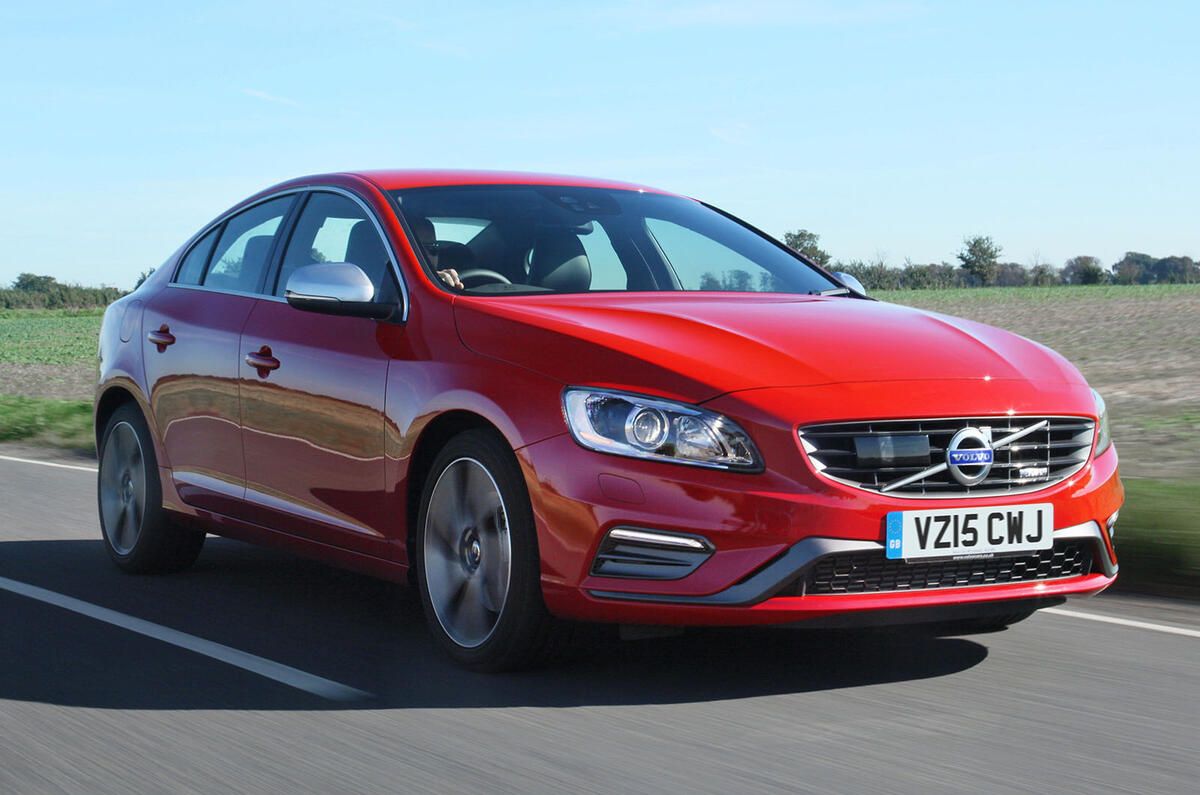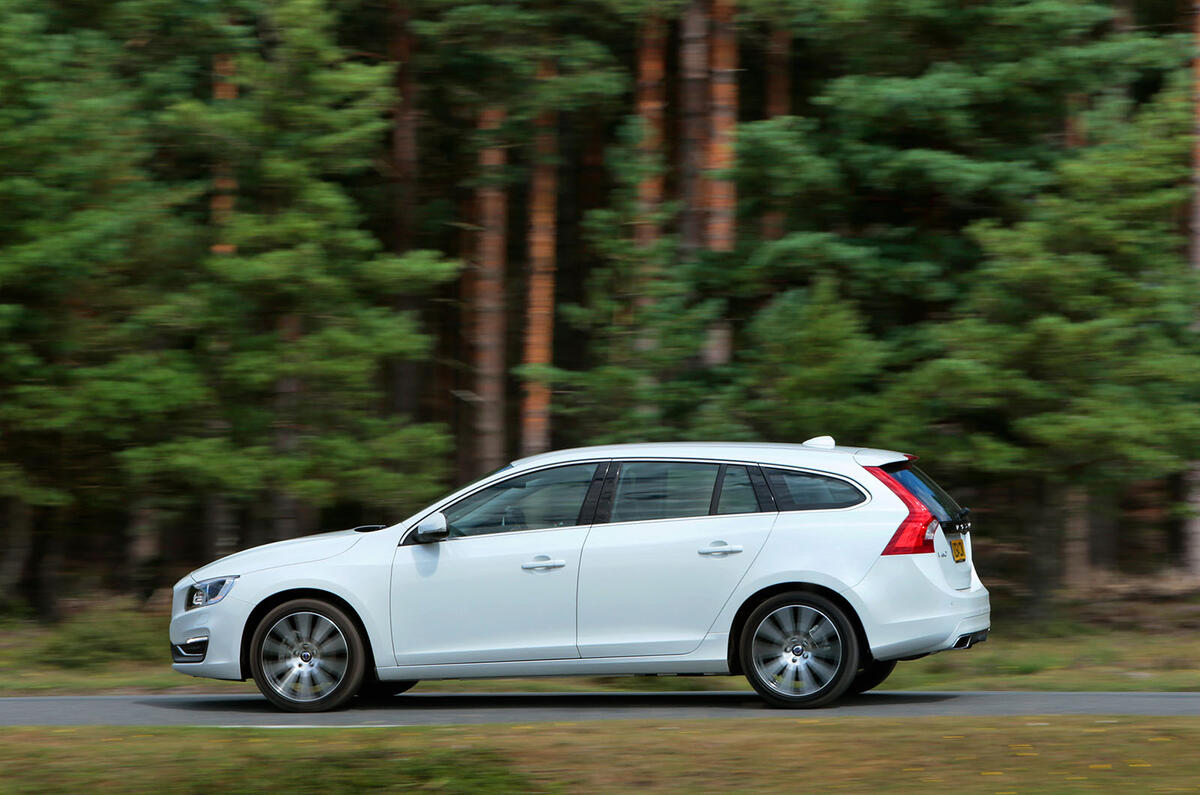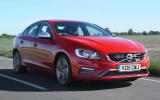Volvo has announced sweeping changes to its V40, Volvo S60, Volvo V60, Volvo XC60, V70 and XC70 model ranges for the 2016 model year. The changes bring Volvo’s four-cylinder Drive-E engine range to its full front-wheel drive model range.
Built to a maximum capacity of 2.0-litres, the four-cylinder Drive-E engines use a combination of turbocharging, supercharging and electrification. In its most powerful form, the Drive-E powertrain is capable of producing 286bhp.
Joining the D5 and D4 Drive-E engines launched in 2014 are new units, badged T2, T3, D2 and D3 - they produce 120bhp, 150bhp, 118bhp and 148bhp respectively. In the V40, the new powertrains mean all diesel models come with CO2 emissions of less than 100g/km, with 94g/km emitted in D2 form alongside a claimed 78.5mpg.
In the petrol V40, the new 1.5-litre T2 and T3 engines - both linked to an automatic transmission - can return 51.4mpg with CO2 emissions of 129g/km. The two diesel options are also available in the V40 Cross Country.
The D2 and D3 diesel engines also appear in the S60, bringing CO2 emissions of as low as 99g/km and fuel economy of up to 74.3mpg. Petrol-powered S60 models, meanwhile, benefit from the T3 engine in both manual and automatic forms.
The V60 Hybrid has been renamed D6 Twin Engine - in line with the recently-launched XC90 T8 Twin Engine - and features a range-topping power output of 286bhp, as well as CO2 emissions of 48g/km and fuel economy of 155mpg.
The larger XC60 retains its current five-cylinder D4 and D5 all-wheel drive engine options, but also get a more powerful D4 option, which now produces 187bhp.
Volvo’s new D3 engine also appears in the V70, where it returns up to 68.9mpg, while in the larger XC70 the D4 and D5 engine options both benefit from improved emissions.
As well as the new and improved engine choices, other changes including new paint and wheel options also feature as part of the MY16 changes.
In a statement, Volvo said: “This roll-out of the Drive-E powertrain family, Volvo’s in-house designed and built engines and gearboxes, marks a further step in its technological independence and also ends Volvo’s reliance on engines sourced from other manufacturers.”
Get the latest car news, reviews and galleries from Autocar direct to your inbox every week. Enter your email address below:















Join the debate
Add your comment
I'm surprised the D2 and D3
The Ford Focus 1.5 3 cylinder
winniethewoo wrote:The Ford
Sorry - no such thing.
The 1.5 is a 4 cylinder - effectively the 1.6l 4 cyl engine with a 1.4l crank in it.
stavers wrote:winniethewoo
You are right. My mistake.
New engine old stats.
But thats with a DSG gearbox,
Manual, to save you checking
Manuals, to save you looking up figures
Ok, The Manual is 59 mpg and CO 112, still far better than the Volvo. Regardless of gearbox the small VW 150bhp 1.4 has better stats.
xxxx wrote:winniethewoo wrote
This time, instead of speculating from what I read before, I did some research. And yeah, Volvo with the manual emits 127g/km CO2, only 2g/km lower than the Auto, so is way behind VW. Given the similarities in figures to the Ford 1.5 Ecoboost, (cylinder count, power, capacity) I am suspicious this "new Volvo" engine is another Ford unit.
I assumed these were the modular 3 Cylinder 1.5 litre Drive E engines we heard about a last year. They can't be because they have 4 cylinders. When the real 3 cylinder Volvo engines are done, I am guessing they should at least match VW's figures.
xxxx wrote:winniethewoo wrote
This time, instead of speculating from what I read before, I did some research. And yeah, Volvo with the manual emits 127g/km CO2, only 2g/km lower than the Auto, so is way behind VW. Given the similarities in figures to the Ford 1.5 Ecoboost, (cylinder count, power, capacity) I am suspicious this "new Volvo" engine is another Ford unit.
I assumed these were the modular 3 Cylinder 1.5 litre Drive E engines we heard about a last year. They can't be because they have 4 cylinders. When the real 3 cylinder Volvo engines are done, I am guessing they should at least match VW's figures.